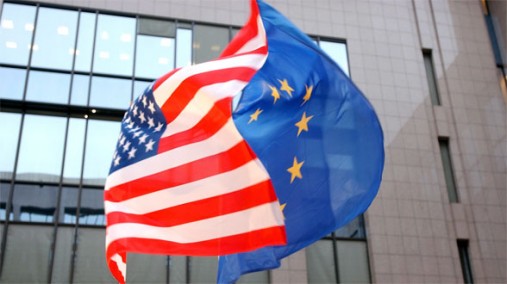Josef Joffe has labored in the transatlantic vineyard for so long that the muddled judgment in his article in the latest issue of Commentary, comes as a surprise. Joffe has given the familiar reasons behind America’s resetting of priorities elsewhere: Europe is no longer the “strategic fulcrum of the world;” it is stagnating, even declining, in wealth andinfluence; China, India, and other places are far more dynamic today; and so on.
It spite of these trends, Joffe has placed his main emphasis on what appears to be a related but independent shift in mentality. America is now, like nineteenth century Britain, the great offshore balancer.Europe, having already been rebalanced by history, rates as an afterthought.
Or is it? Joffe reminds us that the EU remains the US’ largest trading partner and a formidable center of global activity. He ends by reasserting that the Atlantic (and therefore Europe) is “home” for America, and somehow always will be. This conclusion is complacent, ahistorical and possibly dangerous. For most of American history (at least post-independence), the Atlantic was not home. Many Americans were ambivalent about Europe, which they called the Old World. Most of the United States’ direct involvement abroad during the nineteenth century took place in other regions. The Pacific and the Caribbean have as much, or even more, claim to being American homelands. It took a powerful effort in the early twentieth century to replace that ambivalence with a strong commitment to “the Europe, whole and free” that George H.W. Bush celebrated, at last, at the century’s end.
The commitment may someday be seen as an anomaly in American history. Or not. This depends on decisions by people on both sides of the Atlantic, however strong or compelling today’s “structural” conditions may or may not be. The Europe-first orientation that dominated American thinking from the 1920s to the mid-1990s was, ultimately, a choice. Some people cast it in terms of survival. It did not have to be. The choice was based on the determination of a select group of Americans, once called Atlanticists, that the mantle of world leadership had passed to the United States; and that they could only succeed with the willful collaboration of the Europeans who had formerly worn it.
This involved, moreover, a transformation of the means of diplomacy as much as its substance. Collective security was meant to replace the balance of power. In reality, the two formed into a transatlantic amalgam that proved greater than the sum of its ideological parts, at least so far. NATO and similar institutions survive as much as diplomatic fora as expeditionary forces or agents of power projection.
Atlanticists once eschewed the rhetoric of Realpolitik—offshore balancing and all that. They regarded it as neither clever nor helpful. To them the Atlantic region was meant to evolve into an open, prosperous and peaceful community which had the potential, someday, to become global. It held itself to high standards but it was not inherently exclusive. It did, however, represent to its defenders a rise in the quality and sophistication of international relations.
The secret to Atlanticism’s success in the twentieth century was the fortunate conjunction of culture, geopolitics, economics and demographics. It is unlikely to be repeated. Many of these elements no longer exist or have receded, the generational and cultural ones in particular. The American elite, especially the foreign policy establishment, no longer convey the sense of having to prove their historic worth, role or responsibilities vis-à-vis Europeans. And many
Europeans, even European Atlanticists like Joffe, appear to be less receptive to a heavy American involvement in their affairs.
This may not be so bad. But it needn’t mean the Atlantic era is over entirely. The alternatives to it may still be worse than its preservation under new conditions. If so, the greatest threat to it now is complacency. There is nothing preordained or automatic about Atlanticism. If the problems of the EU (and the remainder of Europe) become too big a burden for the alliance, the United States will cast its lot elsewhere; and vice versa.
Joffe is not the first person to notice it. He and others may come to regret it. If so, the obituaries of Atlanticism will almost surely point to the mistaken idea of some of its greatest proponents that it represents the historical norm rather than the hard earned and fragile exception.
Kenneth Weisbrode is a historian at the European University Institute and author of “The Atlantic Century.”
Image: us-eu-flags-intertwined.jpg
